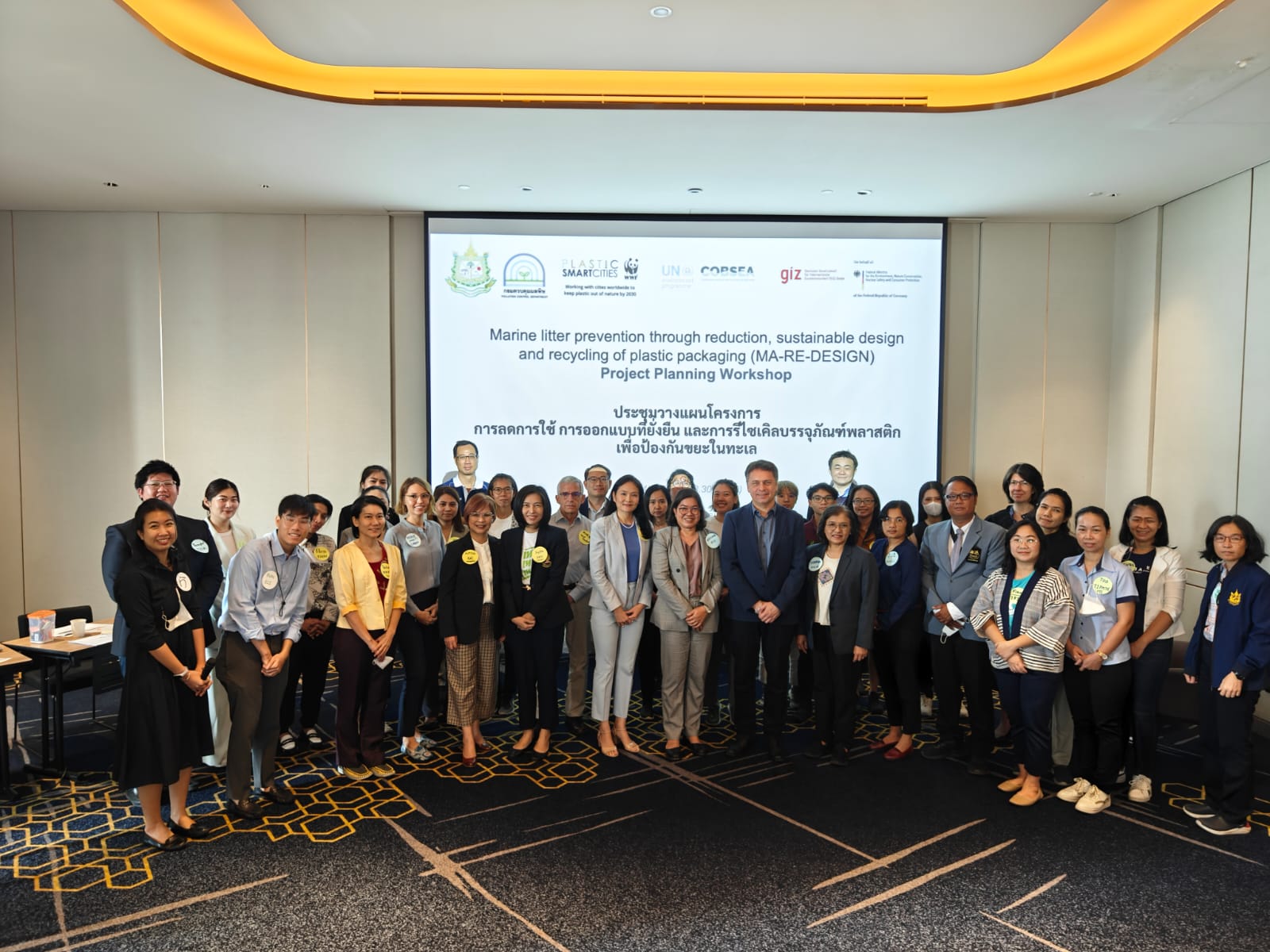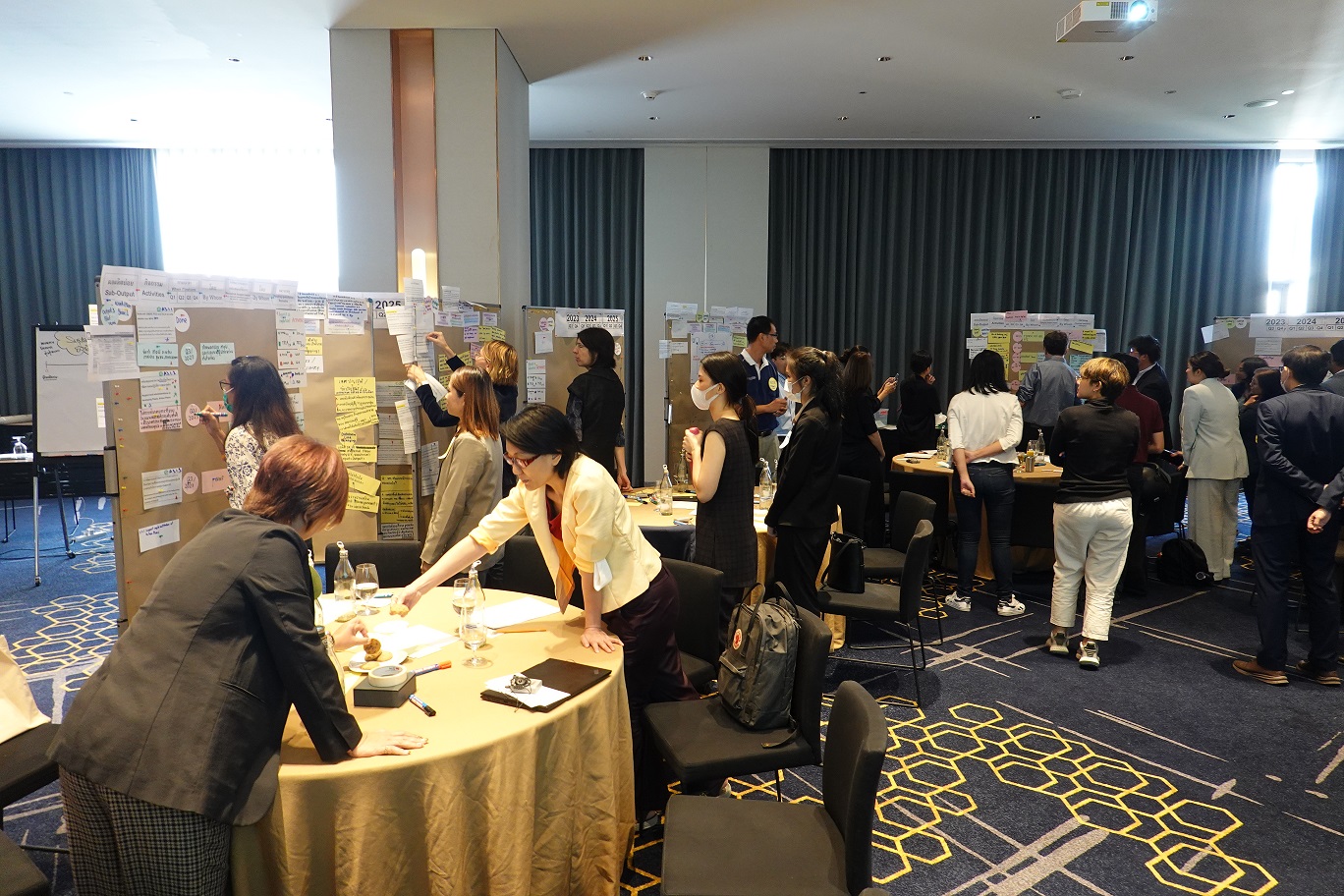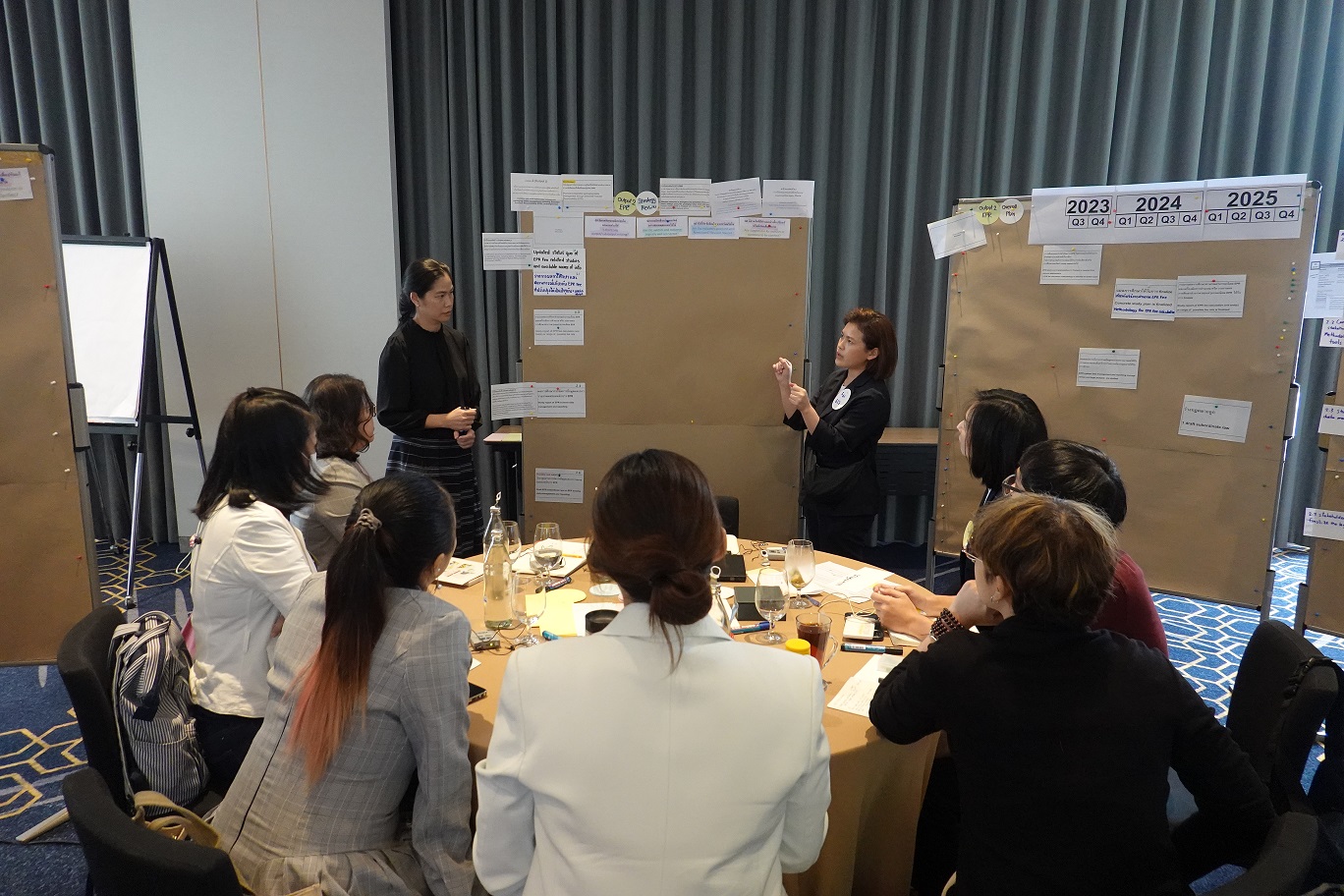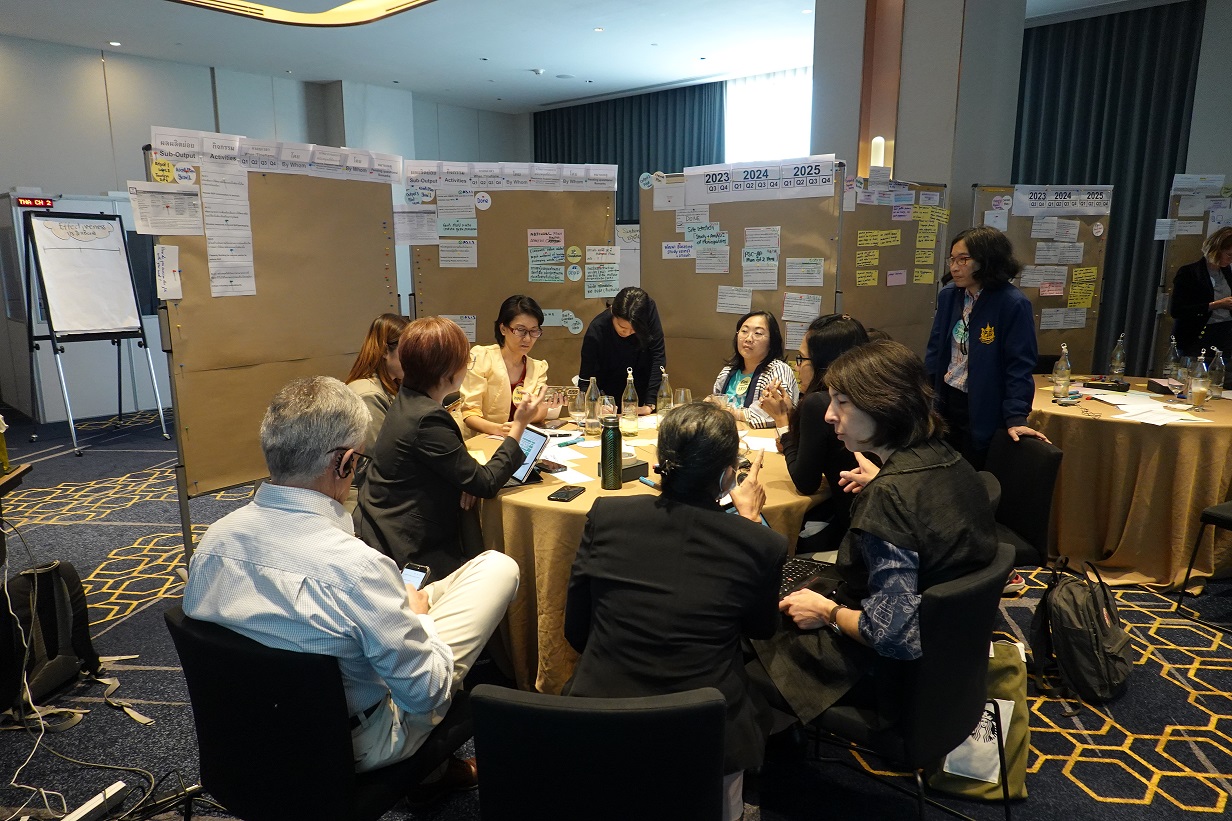Unlocking Expertise: MA-RE-DESIGN Planning Workshop Reveals Insights

- The MA-RE-DESIGN project, financed by BMUV, is being implemented by GIZ, WWF, and UNEP-COBSEA, in collaboration with the Pollution Control Department and relevant stakeholders to address plastic waste management and the protection of the Thai marine environment.
- A planning workshop was held in collaboration with relevant units to gather information that can effectively define the project’s operational framework.
- From fruitful brainstorming, a well-defined project path has emerged. Active participant support to drive this collaborative plan forward is now essential.
The Marine Litter Prevention through Reduction, Sustainable Design and Recycling of Plastic Packaging (MA-RE-DESIGN) project, funded by the German Federal Ministry for the Environment, Nature Conservation and Nuclear Safety (BMUV), is being implemented through a collaborative partnership between the Deutsche Gesellschaft für Internationale Zusammenarbeit (GIZ), the World Wide Fund for Nature (WWF), and the United Nations Environment Programme – Coordinating Body on the Seas of East Asia (UNEP-COBSEA) with the collaboration of the Pollution Control Department as a project partner and relevant stakeholders from the public and private sectors, academic institutes and non-profit organisations. The project aims to support plastic packaging waste management and the conservation of the Thai marine environment. This initiative is aligned with Thailand’s Roadmap on Plastic Waste Management 2018–2030, which represents the primary policy for plastic waste management in the country. A planning workshop was conducted on 14 July 2023 to drive the efficient implementation of the project and gather data and recommendations to establish effective operational guidelines and frameworks, The workshop involved more than 40 participants from government agencies, the private sector, academia, and non-profit organisations.
An overview of the project by the representatives of GIZ, WWF, and UNEP-COBSEA was presented during the workshop encompassing the introduction of draft workplans for each specific output, which includes activities, milestones, timeframe, as well as the necessary resources and support required for successful execution. This presentation was directed towards participants with expertise in each output and aimed at extracting their insights. For instance, participants were encouraged to provide feedback on whether the activities align well with the current circumstances, and the degree of relevance of these activities to the overall results. Moreover, the project invited additional suggestions beyond what was outlined in the draft workplan. This approach aimed to come up with the most suitable plan in consideration of the current situation.
Through the brainstorming activity, the project received excellent collaboration from the workshop participants across all outputs. This has significantly enhanced the project’s operational workplan. Additionally, the project has garnered valuable suggestions, concerns, and precautionary notes for systematic implementation. Furthermore, the project has acquired new datasets that are more aligned with the current operational context. Of utmost importance is the participants’ readiness to actively support the project’s progression according to the jointly devised plan. In the subsequent phases, the project will carefully analyse the suggestions provided by the participants and incorporate them into a well-structured operational framework that resonates effectively with Thailand’s present circumstances.
GALLERY
Chanoksuda Pongsawang
Project Advisor, MA-RE-DESIGN
Email:chanoksuda.pongsawang(at)giz.de


